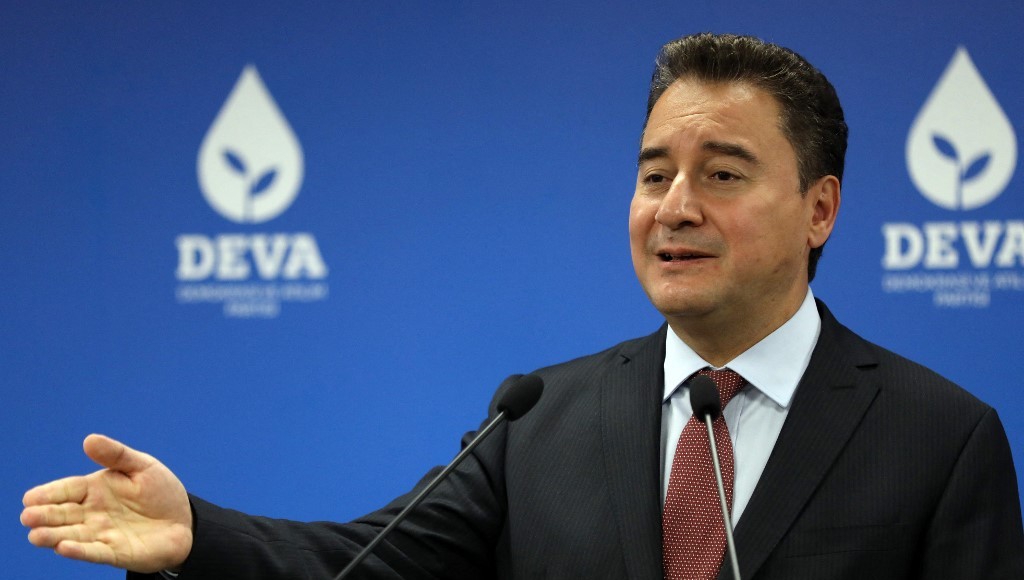Democracy and Progress Party (DEVA) leader and former Turkish deputy prime minister Ali Babacan has said he regrets making a decision in 2015 not to speak out about politics and failing to warn about the risks of the ruling Justice and Development Party’s (AKP) plans to switch to a presidential system of governance in 2017.
“I knew it would drag Turkey into a disaster. I had made a decision not to speak. If only I had spoken up,” Babacan told journalist Cüneyt Özdemir in an interview posted on YouTube on Friday.
Babacan resigned from the AKP, of which he was a founding member, in 2019, citing concerns and disagreements over its direction. After months of rumors circulating about his plans to establish a new party to challenge AKP rule, he unveiled DEVA in March 2020.
Through a referendum in April 2017, Turkey switched from a parliamentary system of governance to an executive presidential system that granted President Recep Tayyip Erdoğan and his AKP sweeping powers and was criticized for removing constitutional checks and balances, thus leading to a further weakening of Turkish democracy.
Erdoğan was re-elected president under the new system in 2018.
Babacan said preparations for the constitutional amendments facilitating a switch to the presidential system began six months after the declaration of a state of emergency following a failed coup in July 2016. They were kept secret from the public and were quickly presented to parliament for approval.
Babacan, who also spoke about an ongoing economic crisis in the country, said he expects poverty to become more widespread due to the crisis, caused by the depreciation of the Turkish lira and increasing inflation.
The Turkish lira on Friday hit fresh lows after the central bank fired the latest salvo in Erdoğan’s “economic war of independence” by cutting interest rates for the fourth successive month on Thursday.
The reduction of the main rate to 14 from 15 percent comes in face of an annual inflation rate that has surged past 20 percent and is expected to climb even higher in the coming weeks.
The lira was trading down nearly 4 percent immediately after the announcement.
Holding the AKP government responsible for the current economic situation in Turkey, Babacan said people will better understand the consequences of the crisis on their lives in the next few months.
“There will be widespread poverty. The chasm between rich and poor will grow bigger,” he said.
Babacan said that at the time he served as deputy minister responsible for the economy between 2009 and 2015, the country’s central bank was independent and that he had prevented efforts by Erdoğan to meddle in the work of the bank in 2011 and 2012.
“There is a big fire in the country now. The only way to put out this fire is to make the central bank and TurkStat independent,” he said.
The credibility of the various data released by the Turkish Statistical Institute (TurkStat) is under question these days as the institution is accused of not reporting economic data accurately in order to mask the government’s failure to manage the economy.
Babacan also said Turkey should immediately hold early elections in order to get out of its financial crisis but said Erdoğan would not agree to it because he is unlikely to win under the current circumstances.
Turkey is slated to hold general and presidential elections in 2023. Although opposition parties are calling for early elections, Erdoğan insists that the elections will be held as scheduled.



